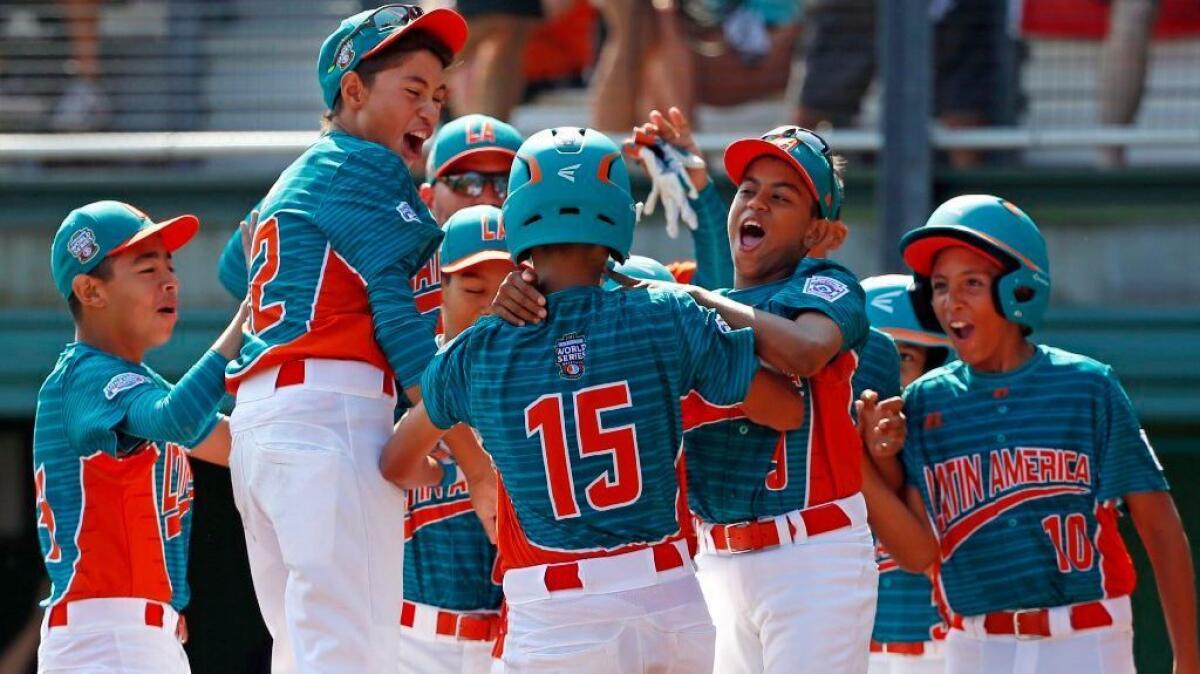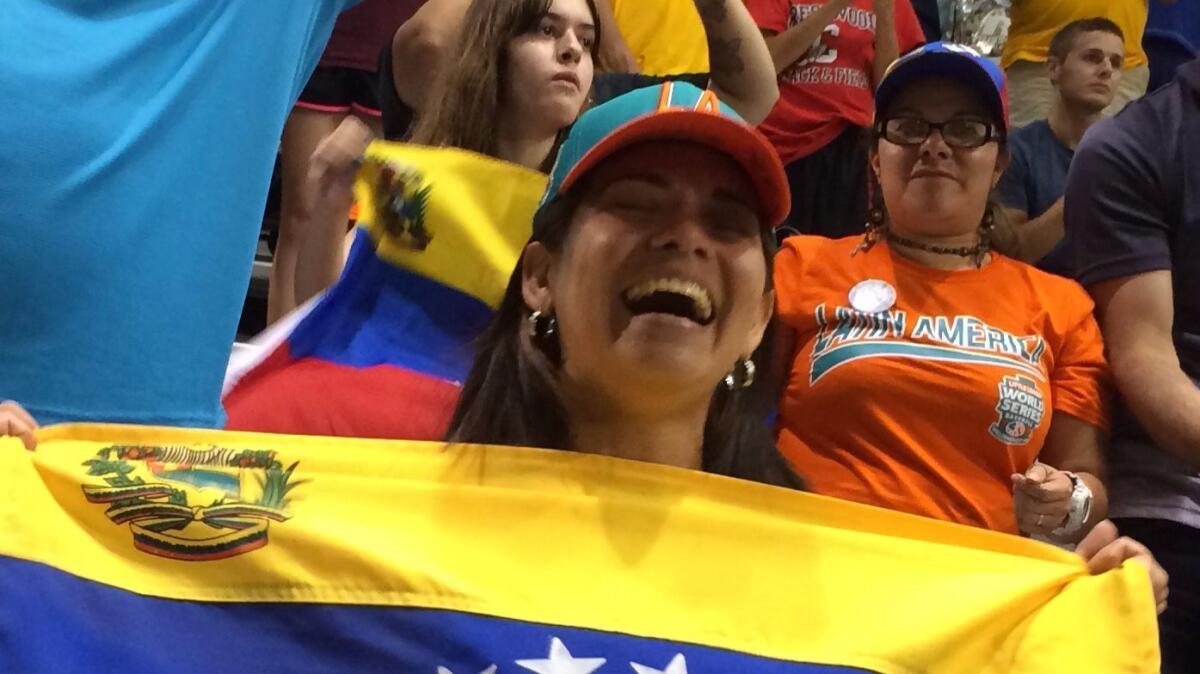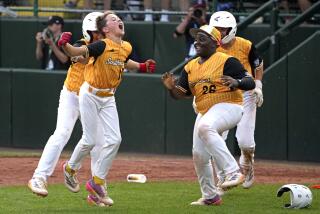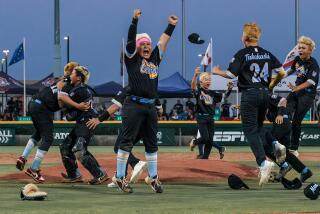Venezuelans make a big impression at Little League World Series

- Share via
Reporting from South Williamsport, Pa. — The Venezuelan team showed up at the Little League World Series last week with the tiniest player, the smallest rooting section and some of the longest odds to win the title.
It bowed out of the tournament Tuesday, losing 8-0 to Mexico. Along the way its players won over fans in two countries with their heart, courage and sportsmanship.
“It’s really important,” coach Luis Romero said in Spanish. “It’s a little happiness that we’re sending to the country in the middle of all the sadness there.”
That the players and coaches even made it here is a triumph given the obstacles they faced in getting out of South America. Although tournament organizers pay for travel and housing, the teams are responsible for obtaining travel documents.
In Venezuela, that can be a challenge.
Not only is the cost of a U.S. visa prohibitive — about $170, equal to more than a year’s pay for a minimum-wage worker — but the players had to make a 400-mile trip from their homes in Maracaibo to the capital of Caracas to apply for them in person.
And they had only three weeks to do it.
So Texas Rangers second baseman Rougned Odor, who learned to play baseball in Maracaibo, paid to fly the players and coaches to Caracas and San Diego Padres pitcher Jhoulys Chacin, who is also from Maracaibo, bought the visas.
Other major leaguers were supportive with words and visits to South Williamsport to watch the kids play.
“It’s special,” St. Louis Cardinals outfielder Jose Martinez said while visiting the LLWS. “The country is already proud of them.”

The local community stepped up, too, adopting the Venezuelan players and growing a rooting section that started with only three parents. Even they might not have made the trip if not for Eduardo Valerio, a professor at nearby Lock Haven University who found families willing to house those parents during the tournament.
Alberto Bermudez, the father of outfielder Andres, cleaned out much of his savings to pay for the trip to watch his son play, and said he would have paid double for what he called an “unforgettable” experience.
“How many baseball players can say I went to Williamsport?” said Carolinne Valbuena, the mother of third baseman Jhann Bozo, who relied on a sister living in Australia to help with expenses. “The kids are totally different. They’re excited by the help, the support, the collaboration.”
The team paid whatever debt it owed with a warm display of sportsmanship in Monday’s victory over the Dominican Republic, one that started and ended with Omar Romero, the smallest player in the World Series at 4 feet 8 and 78 pounds.
With both teams facing elimination, Romero, hitless in the tournament, came to bat with one out and two on in the bottom of the sixth inning. Down to his final strike, Romero lined a high fastball — when you’re 4-8, every fastball is high — to the right-field wall for a walk-off triple.
But it’s what happened next that was memorable. As the Venezuelans danced around home plate, Dominican pitcher Edward Uceta dropped face down on the mound and began sobbing. The Venezuelan coaches, the first to notice Uceta, rushed to the mound and scooped the boy up in their arms.
The players broke away from their celebration to comfort Uceta, with Romero wrapping the pitcher in a long embrace. The two, who bonded quickly after their teams arrived at the World Series, had become inseparable in the players dorms. And now they would be linked in this tournament moment.
Romero said he had conflicting emotions after the game, saying he felt bad for his friend but happy for his teammates. He dedicated the hit to his late grandfather and uncle.
Romero said he and Uceta would always be friends, which Uceta echoed after Venezuela lost the next day.
So even though Venezuela was eliminated, it may have provided something more important to the people back home, who have water and food shortages, staggering inflation and political unrest under President Nicolas Maduro.
“This will bring happiness to the whole country,” Venezuela manager Alexander Ballesteros said.
Assistant coach Luis Romero, Omar’s father, added his thoughts.
“The children are here providing joy,” he said. “We’re a land of baseball. These kids’ futures are enormous.”
Follow Kevin Baxter on Twitter @kbaxter11
More to Read
Go beyond the scoreboard
Get the latest on L.A.'s teams in the daily Sports Report newsletter.
You may occasionally receive promotional content from the Los Angeles Times.











